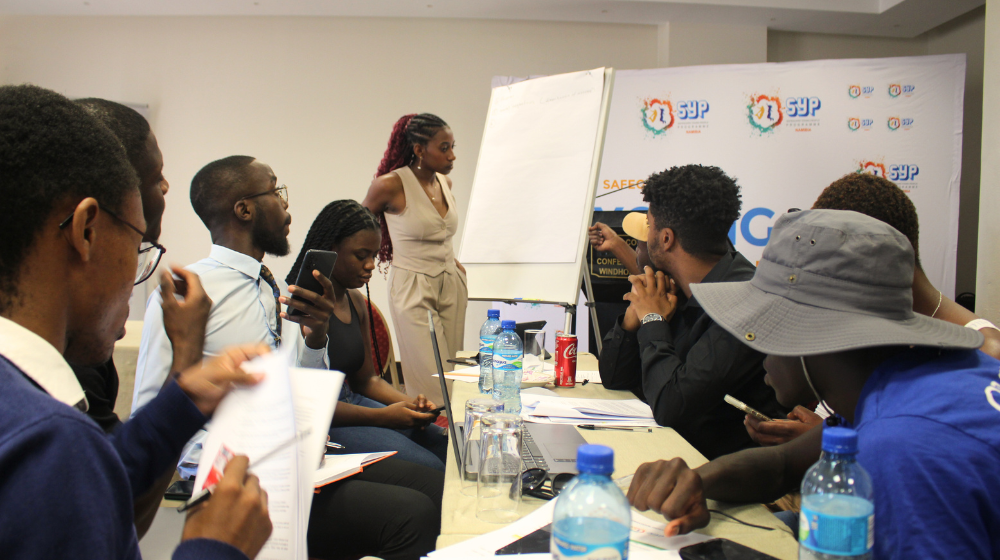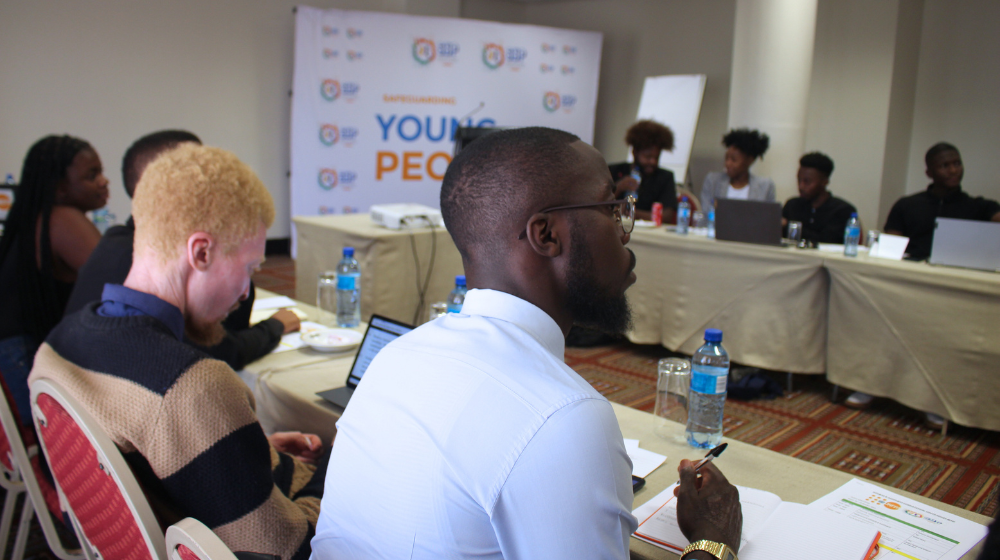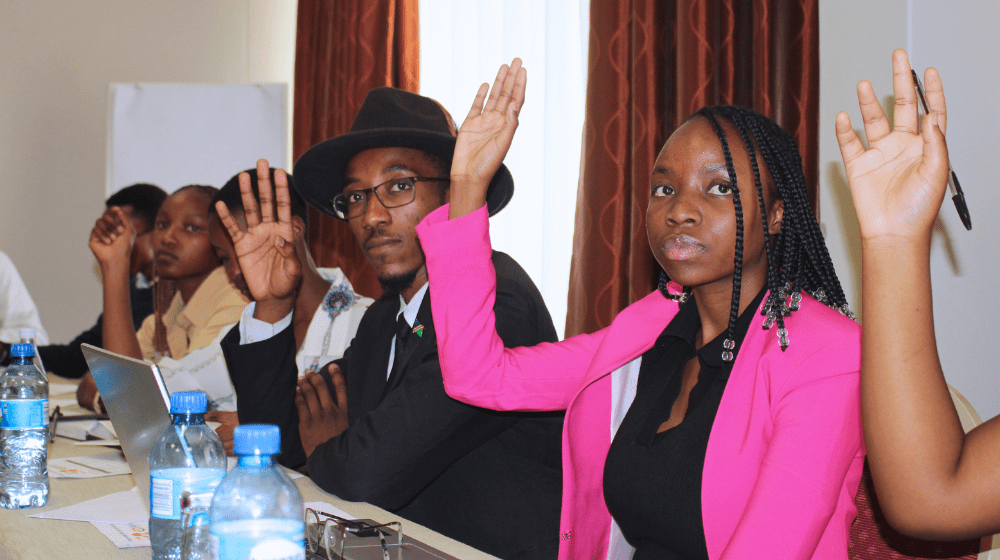
WINDHOEK, Namibia – Recognising the pivotal role that young people can play in development and planning, the United Nations Populations Fund (UNFPA) Safeguard Young People (SYP) Programme hosted a youth-led consultation with over 25 young people in Windhoek to share their experiences and perspectives on issues affecting youth as part of the Addis Ababa Declaration on Population and Development (AADPD) review processes.
With this year marking 10 years since the AADPD was adopted, the youth consultation meeting served as a platform for young people from different backgrounds and expertise in Namibia to share experiences, insights, challenges and recommendations in the formulation and finalisation of the AADPD@10 review processes.
“I thought we as young people do not have a say in whatever the elders have decided because it is them that brought us independence,” said 19-year-old Namibian University of Science and Technology (NUST) student Maria Michael, who participated in the AADPD and ICPD youth consultations meetings held from 24 – 25 October 2023 in Windhoek.
Because of this meeting I have learnt how decisions are made in Namibia and now I know that the youth does indeed have a say.
“Because of this meeting I have learnt how decisions are made in Namibia and now I know that the youth does indeed have a say,” explained Maria.

To facilitate the amplification of young people’s voices, UNFPA brought together young people from the African Youth Network on Population and Development (AfriYan) and other youth-serving networks across Namibia to engage in dialogue and come up with innovative solutions and recommendations for Namibian youth, in line with the AADPD and ICPD themes including Sexual and Reproductive Health and Rights.
‘We are the ones who will be impacted’
Shawn Uiseb, 23, who also took part in the AADPD@10 youth consultations, noted that with over 50 percent of the population being under the age of 30, laws and policies have a significant impact on the ways young people live their lives.
“We are the biggest subgroup in the country so it is important for us to participate not only because it means that the majority of the country’s needs are accounted for but because it also means that the generation following us does not have to contend with the same struggles that we had to as youth”, said Shawn.
Throughout the two-day consultation meeting, participants highlighted key priority areas for youth in Namibia, referencing the six pillars of the AADPD: Dignity and Equality; Health; Place and Mobility; Governance; Data and Statistics; Partnership and International Cooperation.
The youth consultation meeting provided an enhanced understanding of the challenges young people face in Namibia to ensure the representation of youth-focused issues in the AADPD agenda.
In particular, they extensively discussed how young people in the country are impacted by the lack of timely and disaggregated data; unemployment; corruption; poor resource management; social and economic inequalities as well as lack of access to youth-friendly sexual and reproductive health services and commodities.
“Period poverty is especially prevalent in the country. A great improvement was achieved with the removal of Value Added Tax (VAT) from sanitary pads, however a lot of girls and young women are still struggling to go to school because they do not have the money to buy pads to sustain themselves each month,” noted 20-year-old University of Namibia (UNAM) student Nondumiso Ngenwya at the meeting.
Following the youth consultation, a consolidated Continental youth statement and position was produced and submitted to the African Union for integration within the final Continental AADPD review report.
About AADPD
The Addis Ababa Declaration on Population and Development (AADPD) localises the International Conference on Population and Development (ICPD) Programme of Action for the African continent. The AADPD provides region-specific guidance on population and development issues, and guidelines for the full implementation of the ICPD beyond 2014.
About ICPD
ICPD30 will celebrate 30 years of International Conference on Population and Development (ICPD) achievements and a growing understanding of the importance and significance of human-centred sustainable development, setting the stage for a recommitment to the ICPD agenda and positioning for the post-2030 population and development agenda.


